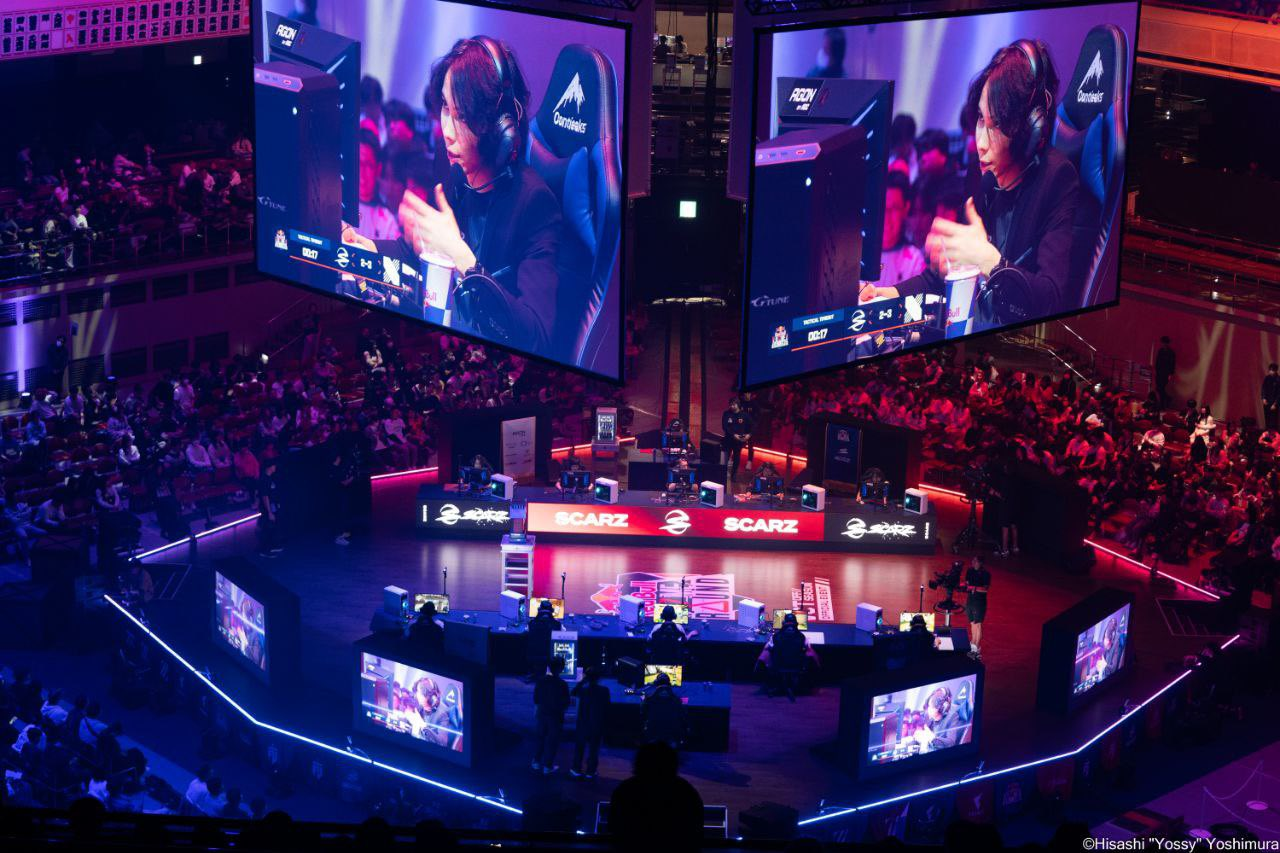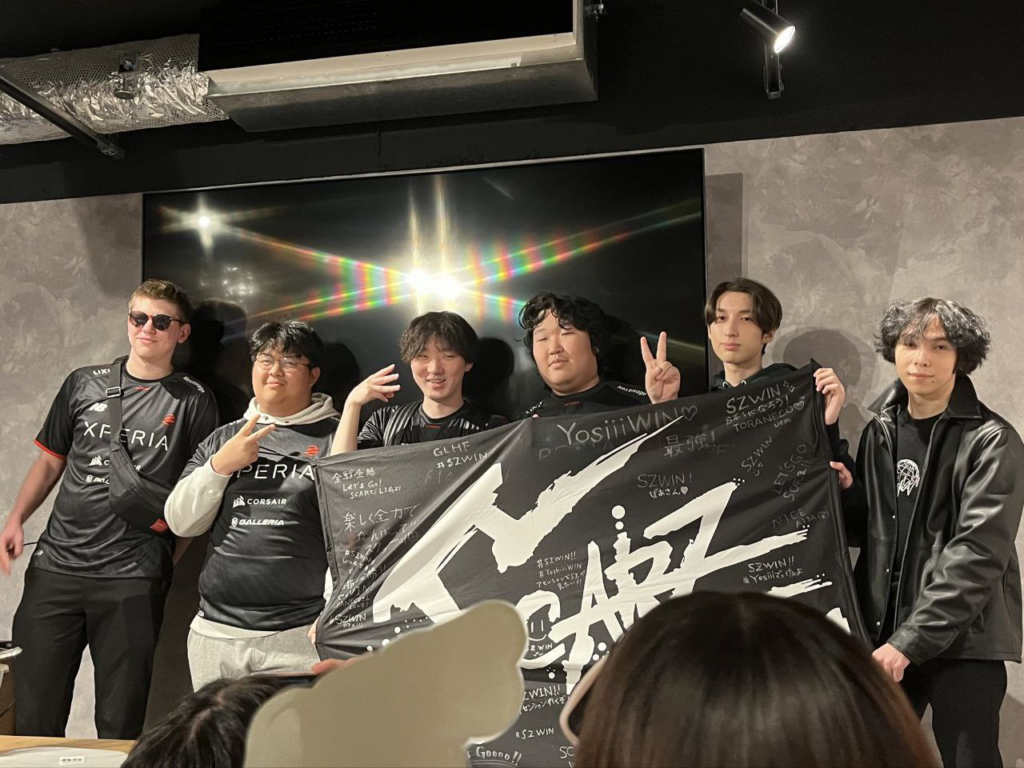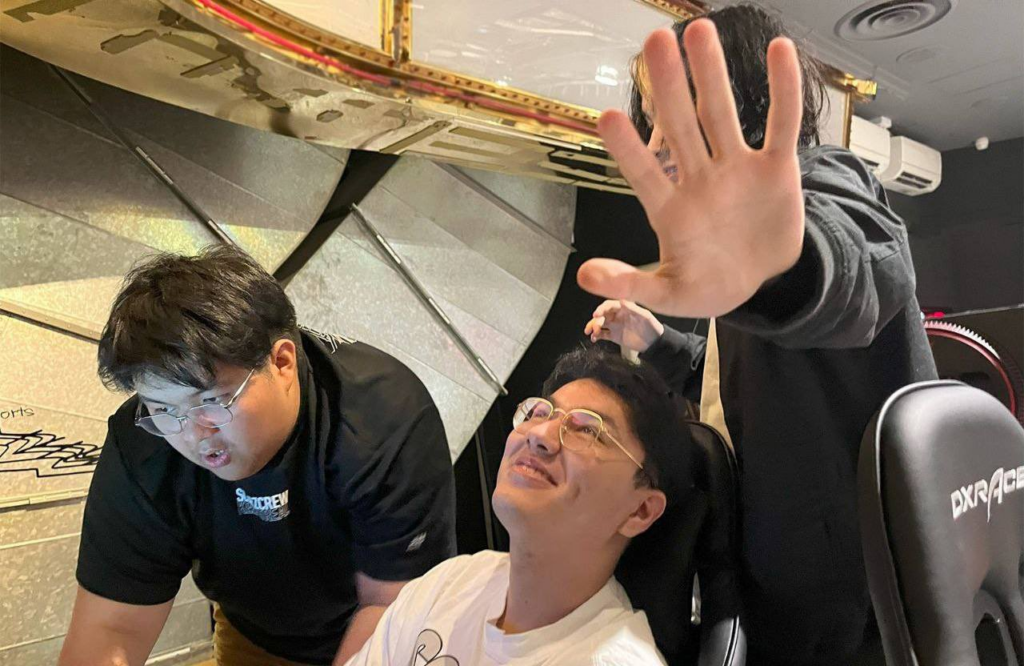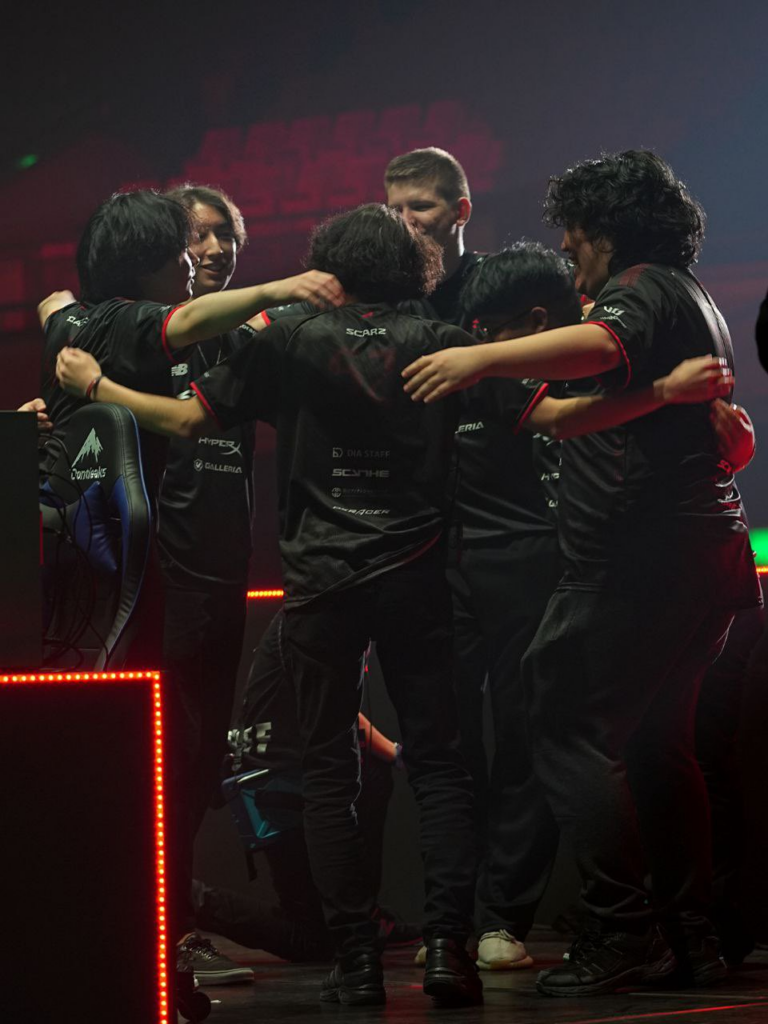
Fadezis breaks down what makes great coaches and coachable players
We continue our conversation with former SCARZ head coach Daulet “Fadezis” Abilov. In the last episode, we explored his beginnings and his journey through Challengers Japan. This time, we dive deeper into his role as a coach. What it takes to be one, and how to embrace being coached as a player.
What qualities does a coach need to have?
"My opinion is a coach is the one who needs to: give emotional support, like how to deal with emotions, how to stay focused, give confidence, advice, give a goal, find player identity, be responsible, understand themselves, understand teammates, how to communicate, solve conflicts, how to deal with emotions and pressure, always be ready to be there for a player, but limit their ego to not let it go out of control and don't let overconfidence lead to less involvement and effort in the process. Players should feel they can trust you, that they are appreciated, and can ask you for advice, sometimes maybe even not on a game topic.
Give in-game coaching, like show direction, how to read the game, teach how to make decisions and why, find solutions together when you're teaching, make the player come to a conclusion himself rather than just give ready solutions, show reasons, how to get timings, how to be aware, how to position themselves, watch VODs together with a player and teach how to reflect, how to counter problems and how to force problems, etc. And ideally, these qualities are in one person.
Players need to find lineups, watch VODs and make notes, play agents to find stuff, figure out agents, and learn on their own. If they don't take action to understand or don't learn creativity, reading, and confident thinking, don’t start noticing macro, micro, comms, economy, utility, and ultimate decisions and the reasons or intentions behind them, then they are not going to learn.
Coaches can help with showing how to notice, think, and understand, but they are not the ones who should set every single detail for a player without the player’s participation. Coaches can give tips, advice, and support, but the final answer should come from a player's mouth during practice.
No one is learning from comfortable environments where perfect strats or antistrats are made and all players need to do is follow. Practice is learning and getting through stress tests. If one thing goes wrong or needs to be adjusted, they won’t understand why or how because all they are doing is following what's been said in the stratbook or preparations for opponents. That's why I think it's important to make players involved in theory and strat crafting, in antistrats and VODs, rather than just giving answers.
Obviously, in an actual match, the coach needs to prepare players and rounds, find problems and give solutions for the team, help to reset mentally, and share thoughts."

Is there a direct correlation between coaching staff size and success?
"My final thought is: one coach and one analyst are enough to win. The coach needs to have an idea and vision of what makes their team good, what kind of coach he needs to be for his team, what makes them bad, and how to play your cards. Play to strengths, work on or hide weaknesses, and keep players accountable and in an optimal state.
I understand why many teams want to have more coaches because of how hard it is to manage time, and generally a lot of teams want to play a lot of scrims. Then you also need to follow each scrim, but you also want to have another perspective because you don't have enough time to catch, reflect, and notice everything, so more eyes are better. It’s good to have someone to watch the global scene or research your opponent’s strats and stats, etc.
Getting too much coaching staff means sharing responsibility for what's happening on the server and in actual games with people who are not involved in the games themselves (coaches can speak 3–5 minutes on one map at best), and I don't like it. If there are too many coaches, then players are just robots who are mostly told what to do or they just get overwhelmed with information."
So in what situations would it make sense to bring in additional coaching staff?
"I think an extra coach would only be needed to focus on one small thing, like working on a team weakness (like figuring out a map you struggle with, comp, mental, agent, or playstyle), and let's be real, it's only a specific thing, so you would only need this help for a short amount of time.
The only other good permanent staff addition would be an analyst to help with preparing for opponents (some specifics that the coach, IGL, or players ask themselves) or to collect data from practice and scrims and look into some specifics to fix team issues like collecting data on which team has the best hits on A site with what skillset or execution, and which teams have the best win rates on post-plants and why, and what's ours to see if there is progress or regress in some areas, etc."

I’ve talked about this before with others, but there doesn’t seem to be a clear path to becoming a coach. It’s a lot more straightforward for players because they can just grind their way up the ladder, but for coaches, there’s no clear-cut path to pro. Is there a way for aspiring coaches to break in? Do they have to start with small teams and work their way up, or is there another way to see it?
"There is no clear path to becoming a coach. I started by helping my friends and was very active in the community, helping to organize tournaments, making and translating videos, and analyzing articles. Luckily for me, people just wanted to work with me.
Most coaches were players before, which is good and advantageous because they know what you want as a player from a coach. And if you did well in your past career, it's easier to be respected within a team. I wasn’t a pro and didn’t have experience, so I tried to compensate by providing as much knowledge and structure as I could. I was watching a ton of VODs, content, and reviews to give my team insights, tendencies, counter ideas. I was absorbing and listening to all the experience from interviews and podcasts from IGLs and other coaches, while also reflecting on my own experience. I just tried to become the coach I would want to have if I were a player.
Second part of the question: I think obviously scouting is important, but a coach doing their job should be able to find potential, help it grow, and raise it to the top level. If you can only achieve success when all the pieces are ready and you have the best players in each role, you're not on their level, you won’t be respected or listened to. At that point, there's not much value or impact from the coach.
If you can't identify a player's strengths and make them even stronger, then you’re not as good as you think. If you're teaching, you should understand the game, work on your own gamesense, game knowledge, and ability usage. You should also learn specific things through talking with your players. The reality is: you’ll likely never get the star player you want, especially in the lower tiers (Tier 2–3). I never got the players I wanted in Japan due to high buyouts, contract jails, or simply because they didn’t want to join.
When you’re starting out, you just need to get on a team, trust your players, build good relationships, and grow together moving towards becoming the best as a unit. Loyalty, trust, and the willingness to win together are the only ways to not only build good players but also to keep them.
That doesn’t mean you always keep the same players. If someone is making the team worse or limiting its peak performance, you sometimes have to make hard decisions and replace players who aren't willing to improve or simply can’t due to inflexibility or other circumstances.
As a coach, you need to be emotionally mature, confident, trustworthy, and responsible. If you can take all the responsibility and pressure on your shoulders and still enjoy dealing with your own, your players’, and your team’s problems along with the unhealthy schedule, then you can try. But if you only enjoy working on stats, strats, and in-game specifics, you should probably start as an analyst or a strategic coach first."

Talking about your home region, you’ve been vocal about Central Asia needing its own designated region. Can you break that down for people who might not be familiar with the issue?
"People from Central Asia (Kazakhstan, Kyrgyzstan, Uzbekistan, Mongolia, etc.) just can't play the game properly. I was in Kazakhstan visiting my family in 2022 and couldn't play the game from a PC club. The ping was just unplayable (around 150 at best, I think?). But people there still like the game and want to enjoy it and play it.
Central Asian players are counted as imports in Asia and aren't wanted in EMEA due to high ping and the need to relocate. It's not like there aren't people or environments for competition. I'm pretty sure there was a Riot LoL event in Kazakhstan at some point, and there are many good players in CS:GO from KZ and Mongolia who performed well at the tier-one level. Even players like dos9 and Sultan showed up in VALORANT and competed in Ascension 2024.
Getting a server there would help a lot. There are approximately 58 million people living across all of Central Asia. It’s not the largest region, but even smaller ones get servers, support, and a chance to compete."
You’ve coached a lot of players over the years. Any advice for aspiring players on how to be more coachable or improve in general?
"Be proactive, not just a follower. Saying things like, “I don't know how to play this agent on this map, on this side (and any other specifics). Can you help me figure it out, coach? I have an idea, let's test this in a custom!” This is the mindset you should have.
Noticing things, communicating them, and coordinating plays are skills just as important as aim. Don’t tunnel vision on your aim routine. If you can’t see or organize a play for yourself or your teammates, and aim is all you can bring to the table (especially in a game where you might not even get the chance to take a fair duel in many situations), then you’re nothing special.
Do more VOD review sessions of players in your role from official matches and learn. There’s always something to pick up, even from weaker teams, you might discover a new idea or a play you hadn’t seen before. Review your own VODs and reflect on what you could’ve done better. Don’t be afraid to go deeper into specifics and really break things down."
For more insights on the Asian VALORANT scene and upcoming content like this, be sure to like and follow VALO2ASIA on Facebook, Twitter & Instagram.
Cover photo courtesy of Hisahi “Yossy” Yoshimura
